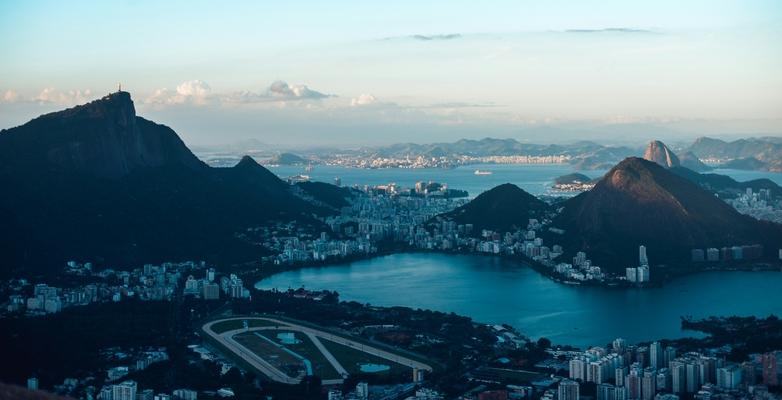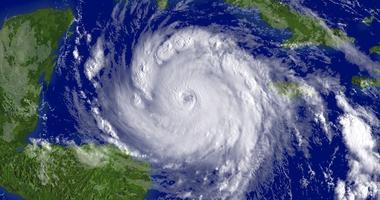
Demanding Climate Rights in Brazil
Climate rights charters are a new tool for communities across Brazil to demand real change.
5 min read
It’s 9 AM in Tamandaré-PE, Brazil, when Maria rises to speak.
The low hum of conversation gives way to silence, broken only by the soft rhythm of footsteps – heel-toe, heel-toe – echoing in time with the rain tapping against the leaves of coconut trees swaying in the morning breeze.
Maria, a 64-year-old leader from the Aldeia Mãe Terra (Mother Earth) Indigenous territory, pauses beside the window. For a long moment, she gazes towards the ocean, which she's seen today for the first time in her life. Then she turns to face the room.
With quiet strength, she begins to speak – about her territory, her people, and the land they call home.
In the room, 20 other leaders from across Brazil listen attentively. They’ve traveled hours from their respective territories to do just this – to share their stories, to listen to each other's struggles and victories, and to write a collective territorial manifesto of demands to bring to COP 30.
As Isadora Gran, climate justice coordinator at Climate Reality Brazil puts it: “Brazil is in the room.”
Climate Rights Charters
Since 2022, The Climate Reality Project Brazil has worked with favela, urban, Indigenous, Quilombola (Afro-Brazilian communities first formed by escaped enslaved people), and other Brazilian traditional communities to build climate rights charters – community-led statements of the specific rights and demands of populations most impacted by climate change.
These charters are community-created tools that help people speak up about what their communities need to cope with and address the climate crisis. They’re created through a hands-on, participatory process where residents and local leaders come together to share traditional knowledge and real-life experiences. Together, they identify how climate change is already affecting their area and decide on the most urgent actions needed to protect their environment and rights.
In each territory, Climate Reality staff support community residents in collectively identifying unmet rights – like the right to health and food safety, to gender and racial justice, or to keep hold of their land. These rights are then outlined in written climate rights charters.
The aim of these charters is to amplify the voices of communities affected by the climate crisis in decision-making spaces, helping them become leaders in creating fair and practical climate solutions. They’ve become a vital tool for community leaders to advocate for their rights in meetings with local and federal agencies, supported by Climate Reality Brazil staff. The charters provide a street-level view on how climate change is reshaping a community – and what needs to happen to protect their rights in the face of climate catastrophe.
But these charters aren’t just about adapting to the increasingly powerful storms, droughts, and more transforming life across Brazil – they’re also about creating new and practical approaches to reducing the greenhouse gas emissions driving these events.
Unique Emissions Challenges
Brazil is one of the world's top-10 greenhouse gas emitters. But unlike in North American and European countries, where transportation and power generation are the primary drivers of climate pollution, a huge part of Brazil’s emissions (nearly half) come from land-use change and forestry.
This category includes activities like deforestation, mining, and large-scale farming that destroy forests ecosystems, emitting greenhouse gasses in the process. According to Climate Reality Brazil’s Gran, many of the communities that have created climate rights charters live in the parts of Brazil that are most affected by this kind of destruction.
“The communities most impacted by the climate crisis — Indigenous, Quilombola, traditional, and urban peripheral populations — are the same ones standing against the industries most responsible for Brazil’s emissions. Protecting their territories is protecting the future of the planet.”
These groups are often Indigenous peoples and traditional communities who’ve taken care of their lands for generations. By creating climate rights charters and organizing their communities to advocate for their rights, community leaders stand up to harmful land use and fight to protect their territories. They’re not only defending their way of life – they’re also playing a key role in fighting climate change by protecting the forests and natural resources that help absorb carbon and slow warming.
But for these communities to continue doing the important work of defending their territories from land-use change, they must have their basic rights met. As Gran explains:
“When we talk about climate change in most marginalized communities in Brazil, the communities want their basic rights guaranteed – land rights, food, water, sanitation. If they don’t have that, they are forced out of their communities. That is a mitigation issue.”
A Territorial Manifesto for the World
With the northern city of Belém due to host the UN’s COP 30 climate summit in November, the world is counting on Brazil to re-energize global climate efforts and raise ambitions for aggressive action to stop rising temperatures.
But even as Brazil becomes increasingly critical for climate action on the international stage, the danger grows that discussions at COP 30 will overlook those living with climate change here in the host nation.
That’s why this May, 20 leaders from 12 different territories – representing urban favelas, Indigenous lands, Quilombola settlements, and other Brazilian traditional communities – gathered to draft a collective territorial manifesto for COP 30. It was a chance for leaders from vastly different territories and communities to come together to explore how they could use the summit to bring their demands to global audiences and get the political response they need to protect their rights.
The goal is simple: Unify their demands into a shared vision – a manifesto – for climate justice in Brazil – and get leaders to listen.
Now, with COP 30 approaching, several climate rights charters are training on the COP process, negotiation paths, and NDCs in partnership with Climate Reality Brazil’s “Climate Reality Leaders Towards COP 30” program. The plan is for charters leaders to speak at COP side events and meet with local government officials to amplify the demands of the manifesto and take the movement for climate rights to the global stage.
Expanding Climate Rights Charters
The climate rights charters are grounded in a simple but urgent belief: Real change will only come when we hear the voices and reaffirm the rights of those on the front lines of the climate crisis.
That’s why Climate Reality Brazil invites everyone living in climate-affected areas to develop their own climate rights charter. Building a charter is a simple yet practical way to get your community talking about what climate change means for them and begin working for practical solutions.
Learn more about the methodology behind the charters to make one on your own, or – if you’re based in Brazil – sign-up for support from Climate Reality Brazil!
If you don't live in a vulnerable territory, you can still join forces with those on the front lines of the climate crisis. Help strengthen the movement for climate rights by reading the climate rights charters and sharing their demands with your network.
Learn more about what climate change means for Brazil and how the nation can lead on solutions at upcoming COP 30 climate talks and beyond by training as a Climate Reality Leader with former US Vice President Al Gore in Rio de Janeiro from August 15–17. Apply now.




